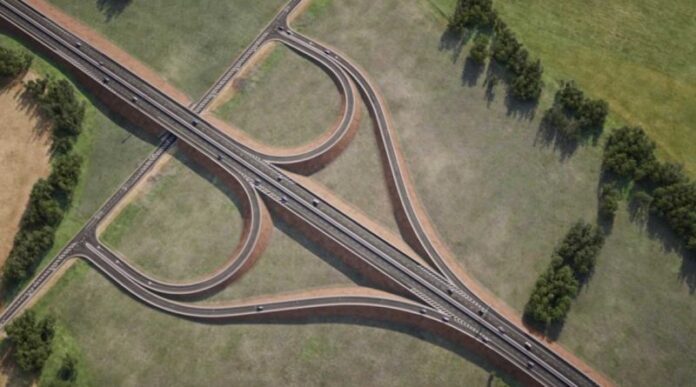
Veliko Tarnovo: In a momentous ceremony on December 3, Bulgaria officially commenced the construction of the highly anticipated 133km Rousse–Veliko Tarnovo motorway, a transformative infrastructure project set to enhance connectivity in the region.
The ambitious endeavour, organized into three phases, represents a significant leap forward for Bulgaria’s road infrastructure.
The Road Infrastructure Agency outlined the motorway’s phased construction plan, dividing it into Rousse–Byala and Veliko Tarnovo segments.
The first phase, Rousse–Byala, involves a strategic bypass around the town of Byala. Subsequently, the focus will shift to the Byala–Veliko Tarnovo phase, bringing the entire project to fruition.
Section 2 of the Byala bypass, covering a length of 35.4km, is entrusted to the Rousse Tarnovo Motorway alliance of companies.
The contract’s value is an impressive 660.4 million leva, excluding value-added tax. Overseeing the construction will be Lider Konsult, engaged in a construction supervision contract valued at 10.8 million leva, excluding VAT.
Regional Development Minister Andrei Tsekov shared insights into the project’s timeline, indicating that the order for the third and final lot, from Byala to Veliko Tarnovo, is expected to be announced post-April 2024.
The meticulous planning reflects the commitment to a well-structured approach, ensuring the motorway’s seamless integration and functionality.
The entire construction process is slated to span five years, emphasizing the magnitude and complexity of this vital infrastructure initiative.
The phased approach allows for a systematic and efficient execution, contributing to the longevity and sustainability of the motorway.
State funding has been secured to initiate construction, with additional financial support from the EU’s Transport Connectivity project.
This collaboration underscores Bulgaria’s commitment to fostering strategic alliances and leveraging external resources to propel vital infrastructure projects forward.
The Rousse–Veliko Tarnovo motorway is poised to bolster regional connectivity, facilitate economic development, and enhance transportation efficiency.
As Bulgaria embarks on this transformative journey, the groundbreaking ceremony marks the beginning of a new era in the country’s infrastructure landscape, setting the stage for progress, economic growth, and improved accessibility for its citizens.
This article was created using automation technology and was thoroughly edited and fact-checked by one of our editorial staff members
